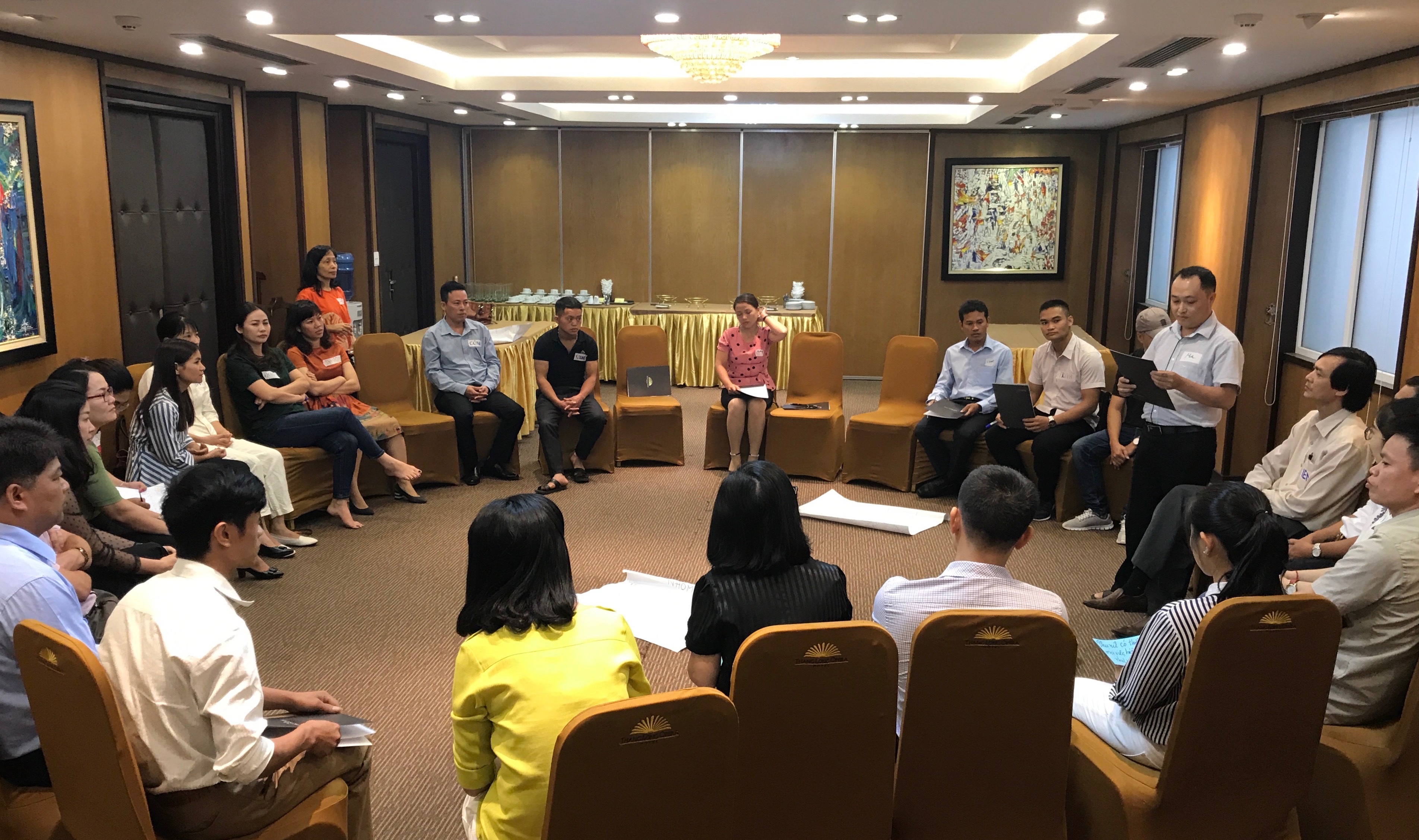
CARE just completed the training on how to take into account differences between men and women while supporting local villagers run income generation activities and how to ensure such activities adapt to climate change.
The training took place from 22 to 24 May, 2019 in Hanoi. Participants were local staff at provincial, district, commune, and village levels from the five provinces of Ha Giang, Hoa Binh, Quang Tri, Tra Vinh, and Kon Tum. During the past year, they have engaged with villagers from the very start, i.e. coming up with an idea to make money, to the whole process of putting such ideas on paper and carry out actual activities.
During the three day training, CARE gender advisor and climate change advisor helped participants to become familiar with specific tools that can help them find out the differences between men and women that might influence their own family decisions. Examples included how they can analyse the way men and women divide the tasks in the family, and how they access to and control over resources such as market information and loans. The participants also practice integrating such tools into their current plan supporting villager groups to carry out their own initiatives.
The session used a participatory approach that engaged eager discussions from participants. “I like the fact that we all come from different provinces. It helps us learn from each other. The practice part makes it easier for us to remember the tools,” said one participant. The workshop also discussed challenges in integrating gender and climate change in reality.
The training is part of the Ireland-funded project Partnership for Ethnic Minorities’ Equitable and Inclusive Development, or P4EM for short.